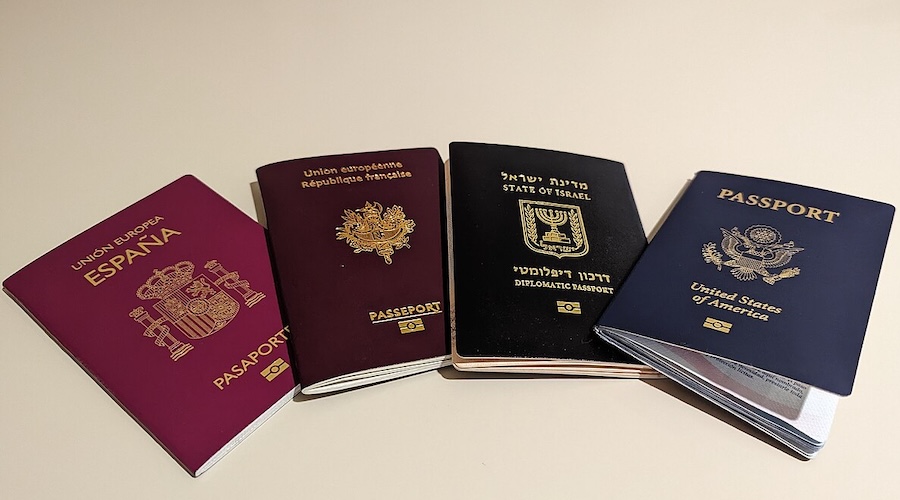
The One Big Beautiful Bill Act - Immigration Provision Summary (Enacted)
Fact Sheet - Saturday, July 5, 2025
Key Homeland Security Enhancements (Title IX):
- Border Infrastructure and Wall System (Sec. 90001): $46.55 billion is dedicated to the border infrastructure and wall system, including new or replacement barriers, access roads, and technology like cameras, lights, and sensors.
- CBP Personnel, Fleet, and Facilities (Sec. 90002):
- Personnel: $4.1 billion to hire and train additional Border Patrol agents, Office of Field Operations officers, Air and Marine agents, and support staff.
- Bonuses: $2.05 billion for recruitment, performance, and retention bonuses for agents and officers.
- Vehicles: $855 million for the repair and acquisition of patrol units.
- Facilities: $5 billion for the lease, acquisition, construction, or improvement of CBP facilities and checkpoints.
- Detention Capacity (Sec. 90003): $45 billion is appropriated to U.S. Immigration and Customs Enforcement (ICE) to expand single adult alien detention capacity and family residential center capacity.
- Border Security, Technology, and Screening (Sec. 90004): $6.168 billion for technology and screening, including non-intrusive inspection equipment, AI and machine learning to combat narcotics, Air and Marine platform upgrades, border surveillance technologies, and the biometric entry-exit system.
- State and Local Assistance (Sec. 90005):
- State Homeland Security Grant Program: Includes $500 million for countering unmanned aircraft systems, $625 million for 2026 FIFA World Cup security, $1 billion for 2028 Olympics security, and $450 million for Operation Stonegarden.
- State Border Security Reinforcement Fund: Establishes a new fund with $10 billion for grants to states for border barrier construction, interdiction of illicit substances and criminal aliens, and relocation of unlawfully present aliens.
- DOD Border and Counter-Drug Missions (Sec. 20011): $1 billion to the Department of Defense for military personnel deployment, operations, and counter-narcotics support at the border.
Key Judiciary and Law Enforcement Enhancements (Title X):
- New Fee Structures (Sec. 100002-100018): A series of new, non-waivable fees are introduced for various immigration applications and processes. These fees aim to cover system costs and are subject to annual CPI adjustments from FY2025 minimums:
- Asylum Application Fee (Sec. 100002): Not less than $100.
- Employment Authorization Document (EAD) Fees (Initial & Renewal):
- Asylum Applicants (Sec. 100003, 100011): Not less than $550 for initial, $275 for renewal.
- Parolees (Sec. 100003, 100010): Not less than $550 for initial, $275 for renewal.
- TPS Recipients (Sec. 100003, 100012): Not less than $550 for initial, $275 for renewal.
- Immigration Parole Fee (Sec. 100004): Not less than $1,000 (with specified exceptions).
- Special Immigrant Juvenile (SIJ) Fee (Sec. 100005): Not less than $250.
- Temporary Protected Status (TPS) Application Fee (Sec. 100006): Not less than $500.
- Visa Integrity Fee (Sec. 100007): Not less than $250 (upon nonimmigrant visa issuance, reimbursable under certain conditions).
- Form I-94 Fee (Sec. 100008): Not less than $24.
- Annual Asylum Fee (Sec. 100009): Not less than $100 for each year an application is pending.
- EOIR Fees for Adjustment of Status and Appeals (Sec. 100013): Includes fees for adjustment of status applications ($1,500), waivers of inadmissibility ($1,050), and various appeals (starting at $900).
- ESTA & EVUS Fees (Sec. 100014, 100015): Increases the ESTA fee and establishes an EVUS enrollment fee of not less than $30.
- Apprehension & In Absentia Fees (Sec. 100016, 100017): A fee of not less than $5,000 for aliens ordered removed in absentia and subsequently arrested, and for inadmissible aliens apprehended between ports of entry.
- Immigration and Law Enforcement Funding (Sec. 100051-100057):
- DHS: $2.055 billion for hiring, removals, background checks, and state/local participation.
- ICE: $29.85 billion for hiring, bonuses, transportation, and technology.
- FLETC: $750 million for training and facilities.
- DOJ: $3.33 billion for EOIR (hiring immigration judges), combating drug trafficking, and prosecuting immigration matters.
- BIDEN Reimbursement Fund: $3.5 billion for grants to states for law enforcement costs related to criminal aliens.
- Bureau of Prisons: $5 billion for staffing and facility repairs.
- Secret Service: $1.17 billion for personnel, technology, and bonuses.
- ORR Sponsor Vetting (Sec. 87001): $300 million to the Office of Refugee Resettlement for enhanced sponsor background checks, home studies, and data systems to protect unaccompanied alien children.
Prioritizing Benefits and Ensuring Fiscal Responsibility
Restricting Benefits to Ensure Fairness:
This Act clarifies eligibility for federal programs.
Benefits Requiring a Social Security Number (SSN) Valid for Employment:
The Act requires a valid SSN for the taxpayer and, where applicable, the student, to claim certain tax credits.
- American Opportunity Tax Credit (AOTC) and Lifetime Learning Credit (LLC) (Sec. 70606): To claim these educational tax credits, the taxpayer must include their own SSN and the SSN of the student on the tax return.
- Child Tax Credit (Sec. 70104): To claim the child tax credit, the taxpayer must include their own SSN (or spouse's on a joint return) and the SSN of the qualifying child.
Benefits Requiring Status as a U.S. Citizen, Lawful Permanent Resident (LPR), Cuban and Haitian Entrant, or COFA Resident:
- Supplemental Nutrition Assistance Program (SNAP) (Sec. 10108): Eligibility is defined to include U.S. citizens/nationals, LPRs, Cuban and Haitian entrants, and COFA residents.
- Medicaid (Sec. 71109): Beginning October 1, 2026, federal payments for medical assistance are restricted to individuals who meet this status requirement, with exceptions for emergency services and for certain children and pregnant women already covered under law.
- Medicare (Sec. 71201): Entitlement and enrollment in Medicare programs will be restricted to U.S. citizens/nationals, LPRs, Cuban and Haitian entrants, and COFA residents.
- Premium Tax Credits (Affordable Care Act) (Sec. 71301): Eligibility for premium tax credits to help purchase health insurance is limited to individuals who meet this status requirement.
Additional Benefit Integrity Measures:
- Disallowing Premium Tax Credits for Certain Medicaid-Ineligible Aliens (Sec. 71302): The bill removes a provision that allowed certain lawfully present aliens ineligible for Medicaid (e.g., due to the 5-year bar) with incomes below 100% of the Federal Poverty Level to receive premium tax credits.
- Medicaid FMAP for Emergency Services (Sec. 71110): Beginning October 1, 2026, the federal matching rate for emergency services provided to aliens will not exceed the state's regular FMAP, eliminating the enhanced rate for this category.
New Remittance Transfer Tax (Sec. 70604):
The Act introduces a 1% excise tax on certain remittance transfers.
- Tax on Cash-Based Transfers: The tax applies to remittance transfers where the sender provides cash, a money order, or a similar physical instrument to the remittance provider.
- Exemptions: The tax does not apply to transfers funded from an account at a financial institution (like a bank) or funded with a U.S.-issued debit or credit card.
- Provider Collection: Remittance transfer providers are responsible for collecting the tax from the sender.
Download Fact Sheet
The One Big Beautiful Bill Act - Immigration Provision Summary (Enacted)

Fact Sheet - The U.S. Immigration System

Fact Sheet - Visa Waiver Program: Legal Open Borders for the Developed World

Fact Sheet - EB-3: Third in Preference, Last in Our Hearts

Fact Sheet - Temporary Protected Status: De Facto Amnesty

Fact Sheet - The Visa Lottery: Surrendering Sovereignty to Random Chance
